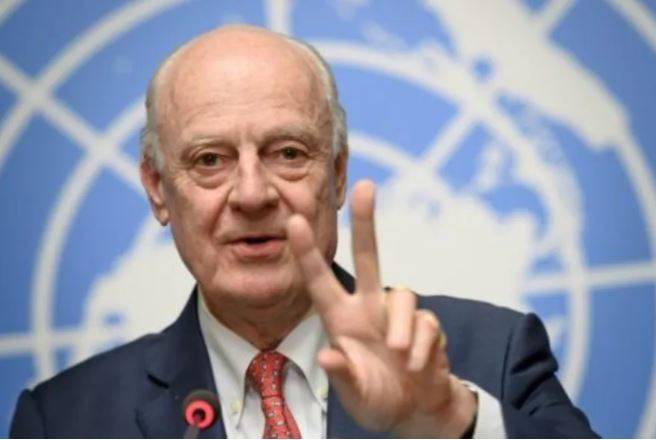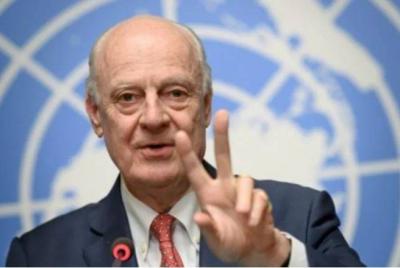The United Nations appointed the seasoned diplomat Staffan de Mistura as special envoy for Western Sahara on Wednesday, following the rejection of around 12 candidates by Morocco and the Polisario Front since the position became vacant in May 2019. UN spokesperson Stéphane Dujarric announced Secretary-General António Guterres's decision, calling it a "positive sign" after more than two years of searching for a candidate and the UN proposing "13 names" to the conflicting parties. Dujarric added that De Mistura would assume his position on November 1st.
In May, Morocco rejected De Mistura's appointment but recently reversed its decision and accepted him under American pressure, according to diplomats. De Mistura, who has Italian-Swedish nationality, will be based in Brussels, where he resides, according to the UN. On October 27, the UN Mission for the Referendum in Western Sahara (MINURSO) is expected to have its mandate renewed for an initial year, which will be discussed during a closed Security Council meeting on October 13.
The new envoy, described in a UN statement as having "over 40 years of experience in diplomacy and political affairs," succeeds former German President Horst Köhler, who resigned in May 2019 after reviving talks between Morocco and the Polisario Front with the participation of Algeria and Mauritania, although these did not yield any tangible results. De Mistura is fluent in English, French, German, Italian, Swedish, and Arabic, and has held senior positions at the UN. He has served as the UN special envoy to Syria (2014-2018) and as the UN Secretary-General's special representative in Iraq (2007-2009) and Afghanistan (2010-2011).
**American Response**
U.S. Secretary of State Antony Blinken announced in a statement that the United States "warmly welcomes" De Mistura's appointment. He stated, "We will strongly support his efforts to encourage a peaceful and prosperous future for the people of Western Sahara and the region," aiming to "resume a political process" without mentioning former President Donald Trump's decision to recognize Morocco's sovereignty over the entire territory in 2020.
According to a UN official who requested anonymity, Washington has an interest "in maintaining ambiguity, as this suits them. They cannot rescind Trump’s decision without changing the relationship that emerged from it between Morocco and Israel. Nor can they cement it as that contradicts UN resolutions," he told AFP, considering that adopting an "ambiguous policy allows them to pressure Morocco."
Morocco was the fourth Arab state to normalize diplomatic relations with Israel under American sponsorship last year, following the UAE, Bahrain, and Sudan. Western Sahara has been a subject of dispute for decades between Morocco and the Polisario Front, supported by Algeria, and is classified by the UN as one of the "non-self-governing territories."
Morocco, which controls about 80% of the vast desert region, has launched major development projects in recent years and proposes to grant it autonomy under its sovereignty. Meanwhile, the Polisario Front calls for a referendum on self-determination under UN supervision, as determined upon the signing of a ceasefire agreement between the warring parties in September 1991.
In its statement, the Polisario Front only indicated that it "acknowledged" De Mistura's appointment. It added that the peace process has "witnessed very serious developments" since last November, alleging that Morocco "undermined the mission of the UN peacekeeping force." The Polisario emphasized that holding a referendum on self-determination is the only way to achieve lasting peace in the region.




